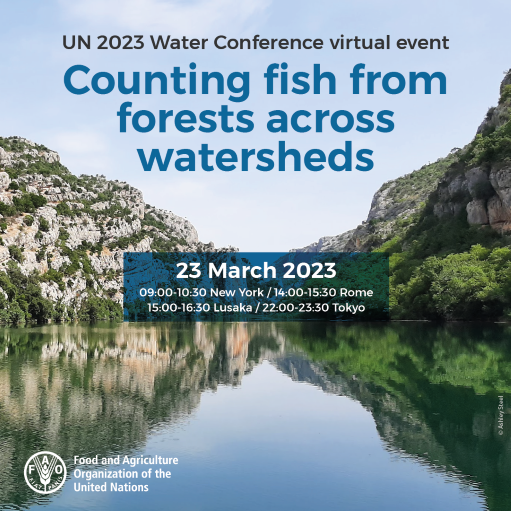
Forests and fisheries are inextricably linked by the flow of water across watersheds, requiring a cross-sectoral management approach. Forests, fish and freshwater directly influence human well-being by ensuring food security and livelihoods.
Forests support the freshwater ecosystems that are home to diverse fish species and important fisheries. They also provide bank and hillslope stabilization, enable resilient food webs, foster healthy soil development, regulate temperature, and provide fuel for smoking fish to enable transport and storage.
Inland fisheries support healthy forests – they provide food and livelihoods to riparian communities who are then better able to manage their forest resources sustainably. Inland fish may also supply the nutrients that feed the forest itself. Migratory fish transport nutrients hundreds of kilometers up-river to forested head water streams where they spawn and die and release nutrients. Across many tropical rivers, fruit-eating fishes promote forest diversity by selectively dispersing seeds of fruit trees within river networks. In these systems, fish are even potential engines of forest restoration.
The freshwater systems that link forests and fisheries are under threat from changes in land-use as well as changing climate patterns. Although they provide services that add nutritional quality to the diets of some of the world’s most vulnerable populations, they often do not receive the attention they deserve – in large part because these integrated systems span multiple sectors, governmental ministries, and SDGs.













